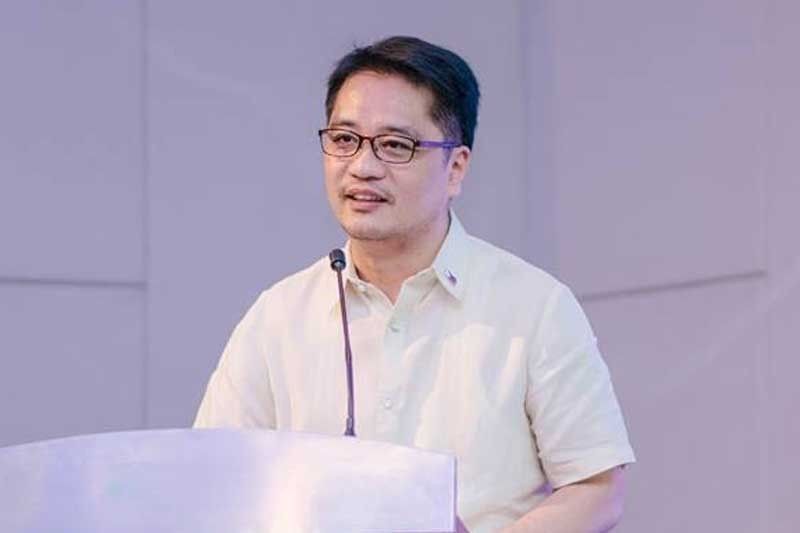UK pharma seeks to conduct vaccine trials in Philippines

MANILA, Philippines — The United Kingdom-based pharmaceutical firm AstraZeneca has applied to conduct clinical trials in the Philippines for its COVID-19 vaccines, the Food and Drug Administration (FDA) announced yesterday.
At a press briefing organized by the Department of Health (DOH), FDA director general Eric Domingo said AstraZeneca is now in the country’s “pipeline” of potential vaccines against COVID-19.
He noted that the Philippines’ Vaccine Expert Panel (VEP) is evaluating the application of AstraZeneca, the fifth candidate vaccine for COVID-19 that may be tried in the country.
The other candidate vaccines are Sinovac and Clover, both of China; Sputnik V of Gamaleya National Research Institute of Russia, and Janssen of Johnson & Johnson of the United States.
“So this (AstraZeneca) is in the pipeline and we’re hoping once the expert panel sees that the Phase 1 and Phase 2 data (of the clinical trials), they will endorse it,” he added.
Of the five candidate vaccines, Sinovac has the most advanced stage with a VEP-approved application as of Nov. 11. Sinovac is already in that part of the process where the Ethics Board asked its manufacturer for some clarification in the application. After this, they may go through the licensing process of the FDA.
Domingo gave assurance that the FDA is “ready to accept and evaluate” all applications submitted to the agency for licensing.
He noted that having an Emergency Use Authority (EUA) will definitely speed up the country’s acquisition of coronavirus vaccines. He pointed out that it could take around seven years to license a vaccine under regular processes.
But with the EUA mechanism in place, this period will significantly be shortened. It is expected that COVID-19 vaccines will be available in the country by second quarter of 2021 with EUA.
Domingo said that under the EUA, the government would consider the product evaluations made by “mature” regulatory agencies abroad. He added that strong surveillance and other safety nets will be implemented to ensure the safety and efficacy of the vaccines.
3-way approach
Meanwhile, officials of the Department of Science and Technology (DOST) and DOH said the government is looking into a three-pronged approach for securing COVID-19 vaccines for Filipinos.
These include the country’s participation in the solidarity clinical trials, forging bilateral agreements to become a vaccine production hub, and using the different platforms of other countries once the vaccines are made available.
During a hearing of the House committee on people’s participation last Wednesday, DOST Assistant Secretary Leah Buendia revealed that the first plan is for the Philippines to participate in the solidarity clinical trials of the World Health Organization’s COVID-19 Vaccines Global Access (COVAX) program.
The plan was also confirmed by Dr. Aleli Annie Grace Sudiacal of the DOH’s Bureau of International Health Cooperation.
Sudiacal said the Philippines is eligible under the COVAX system – which involves pooled procurement by philanthropists, international non-governmental organizations and other groups for equitable distribution of COVID-19 vaccine once licensed and approved – because the country has a low middle income classification and has signified its intention to be part of the system.
Although the country needs to pay $1.60 to $2 per dose to be able to be take part in it, she noted that President Duterte has already approved the advance payment.
“As you all know we have RA 9184 or the Procurement Act which prohibits advance payment for something that is still not there. That is why we had to seek the intervention of the President and it’s very good news that the President has approved the use of the P2.5 billion allotted for the purchase of vaccines for the Philippines to have access to the Covax facility,” she told the committee chaired by Rep. Rida Robes of San Jose del Monte City, Bulacan.
With Duterte’s approval, Sudiacal said the country may get vaccine access for around 20 percent of the population once it becomes available.
Sudiacal noted that the Inter-Agency Task Force on COVID-19 has already identified 12 priority vulnerable groups that will be given vaccines based on the guidelines issued by the World Health Organization Strategic Advisory Group of Experts on Immunization (SAGE).
On top of the list are frontline health workers from the public and private sectors, indigent senior citizens, remaining senior citizens, indigent population and uniformed personnel.
The other priorities include teachers and school workers from public and private institutions, government workers, essential workers in agriculture, food industry, transportation and tourism, socio-demographic groups at significantly higher risk like people deprived of liberty, persons with disability (PWDs) and Filipinos living in high density areas, overseas Filipino workers, other remaining workforce and students.
The second plan, according to Buendia and Sudiacal, is to forge bilateral agreements to become a vaccine production hub.
Buendia said the DOST and other agencies have signed confidentiality agreements with bilateral partners. Under this, partner countries can provide vital information to the Philippines’ expert panel on vaccines still in the development phase during clinical trials.
Those countries, she added, would also conduct three phases of clinical trials in the Philippines.
The third option, according to Buendia, is the use of different platforms by different countries to have the vaccine once it is available.
She revealed that the DOST is currently studying the application of three vaccines – Sinovac, Sputnik V and Janssen – for phase 3 clinical trials.
Buendia clarified that the Philippines has yet to evaluate the vaccine developed by Pfizer of the US because the company has not submitted its application to the department.
Sudiacal added that funding for vaccine procurement would come from multilateral banks such as the World Bank and Asian Development Bank, local bank-facilitated loan from the Development Bank of the Philippines and the Land Bank of the Philippines as well as direct contracting. – Edu Punay
- Latest
- Trending































